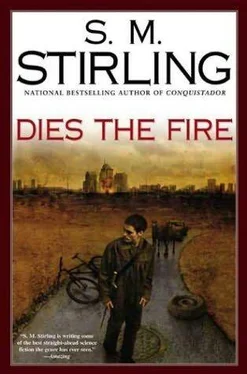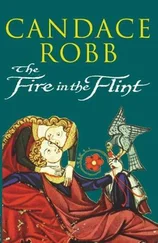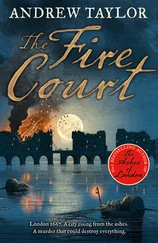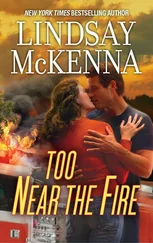S. Stirling - Dies The Fire
Здесь есть возможность читать онлайн «S. Stirling - Dies The Fire» весь текст электронной книги совершенно бесплатно (целиком полную версию без сокращений). В некоторых случаях можно слушать аудио, скачать через торрент в формате fb2 и присутствует краткое содержание. Жанр: Фантастика и фэнтези, на английском языке. Описание произведения, (предисловие) а так же отзывы посетителей доступны на портале библиотеки ЛибКат.
- Название:Dies The Fire
- Автор:
- Жанр:
- Год:неизвестен
- ISBN:нет данных
- Рейтинг книги:5 / 5. Голосов: 1
-
Избранное:Добавить в избранное
- Отзывы:
-
Ваша оценка:
- 100
- 1
- 2
- 3
- 4
- 5
Dies The Fire: краткое содержание, описание и аннотация
Предлагаем к чтению аннотацию, описание, краткое содержание или предисловие (зависит от того, что написал сам автор книги «Dies The Fire»). Если вы не нашли необходимую информацию о книге — напишите в комментариях, мы постараемся отыскать её.
Dies The Fire — читать онлайн бесплатно полную книгу (весь текст) целиком
Ниже представлен текст книги, разбитый по страницам. Система сохранения места последней прочитанной страницы, позволяет с удобством читать онлайн бесплатно книгу «Dies The Fire», без необходимости каждый раз заново искать на чём Вы остановились. Поставьте закладку, и сможете в любой момент перейти на страницу, на которой закончили чтение.
Интервал:
Закладка:
"Guns aren't working?" the man said, his face going fluid with shock for a second.
Then he chuckled: "I suppose that's why you folks are carrying the swords and such."
Chuck had his own Society long sword at his belt and a buckler-a little shield like a steel soup-plate-hooked over it, along with his dagger on his right hip; he'd had those over at Andy and Diana's for coven work. He shoved down a wistful thought about the gear at home in his garage; they'd decided it was too risky to go all the way south through the city for them, and that was that. The rest of the coveners had shovels, or axes, or at least long kitchen knives and baseball bats.
"What do you think really happened?" the storekeeper said.
"Well, we figure it's a global catastrophe," Chuck said. "All our technology-anything involving engines or electricity or guns-has suddenly stopped working. Planes fell out of the air. Most of humanity is going to die in the next six months, except for peasant farmers, and a lot of them are going to die too unless they're real lucky. It's the end of the world as we knew it, and of civilization. So we'd like to buy some things from you, if you're still foolish enough to accept money. We're running for our lives and honestly, I advise you to do the same damned thing."
The storekeeper was a thin balding man with thick glasses. Chuck could see his words being processed and rejected behind them.
Weirdos, the man thought, almost audibly. Suckers. But well-heeled suckers.
Chuck shivered internally. He knew he was talking to a man who would die, soon and horribly, simply because he couldn't really believe in what had happened.
It was all he could do to make himself believe in what had happened, despite the way everything had simply stopped working.
Too big, he thought. It's just too big. For most people, at least. I'm used to believing in things everyone else doesn't, and I think it's an advantage: and I did try to tell this guy the truth.
From what he'd seen, the vast majority of people were going to wait awhile for things to return to normal, or for the Army or the National Guard to show up. Then when they started to get hungry, or the water didn't run anymore, probably a lot of them would panic and go looking for a place where things were normal. The idea that the whole planet had: Changed: was simply too big to grasp; and accepting it meant looking death in the face, the death of a world.
He shivered and swallowed a bubble of nausea; it was too big to grasp thoroughly, down in the gut, and all at once. By the time most really got it into their heads, it would be too late.
I'm among the living dead, he thought.
There were advantages to being one of a collection of misfits who believed in magic.
"So, what would you folks like?" the thin man said.
When the world turns weird, the weird get going, Chuck thought. Aloud he went on, suppressing laughter-hysterical laughter that he probably couldn't stop once it started: "Do you accept personal checks?"
Sally sat beside Juniper on the driver's seat of the Traveler wagon; it was comfortable enough as they rumbled eastward along the dirt road, with a piece of artfully arranged board to support her injured leg. The Portland woman handled the reins quite well for an amateur, but the horses were experienced and knew the way as hills rose on either side.
Shadows flickered over them from tall roadside trees; between them were vistas of fields on either side, and growing patches of tall conifer forest running up creek-sides and gullies towards the heights on either hand.
Juniper kept an eye cocked on Cagney and Lacey as her fingers moved on the strings of the guitar and she sang:
"Fly free your good gray hawk
To gather the golden rod
And face your horse unto the clouds
Above yon gay green wood.
Oh, it's weary by the Ullswater
And the misty breakfern way
Till through the crutch of the Kirkstane pass-"
The slow staccato clop and crunch of the hooves beat a rhythm below the rumbling wheels, and the rattle and creak of the wagon's wooden framework. She could smell dust from the road, the strong grassy smell of the big platter-footed gray horses, and greenness from forest and field beyond; a wet breath of coolness from Artemis Butte Creek as it swung closer to the south side of the roadway.
Underneath the country smells was a tang of burning, something they hardly noticed anymore-it had been constant since the Change. The Willamette was a giant trough, and the smoke from the vast city fires would linger for a long time-until the fall rains came to clean the air, most likely.
Not surprising. With no power, what's the first thing people will do? Make fires, for heat and light and cooking, and when one gets out of control:
The music made the thoughts go away, at least for a while. When she'd finished the song, Juniper put the guitar behind her-there was a padded rack for it on her traveling wagon-and took the reins back. The road wasn't as straight and level now, as they wound up the creekside towards the mountains.
"That was nice," Sally said. "I didn't go in much for that sort of music, but: I've missed music. Any sort of music."
She'd started talking more since she'd stopped being so fearful of the strangers-a fear for which Juniper couldn't blame her, considering the circumstances of their meeting. She could blame her for her soft-pop tastes, but didn't, not aloud.
There were types of music Juniper liked but didn't play herself-she had a weakness for old-time blues, Americana and even some types of hip-hop-and she'd probably never hear them again.
My entire CD collection is useless, except as coasters, she thought. And all the old vinyl too. No music but the live kind, from now on. Maybe I should expand my repertoire.
"I was thinking," Sally said. "About those songs you do: I mean, the knights and swords and horses: I mean, is all that coming back?"
"All that never existed, not the way the ballads paint it," Juniper said. "I don't think what's coming will be exactly like the real past, either-but it's certainly going to have more in common with it than with the way things were right before the Change. Which is a pity; things were real rough back in the old days."
Sally smiled. "I suspect it's going to be a weird old world, when things settle down."
"That it will," Juniper said, musing; it was easier than thinking about the immediate future. "Well: buffalo on the Plains, again, perhaps?"
Sally nodded. "And not just buffalo. I took wildlife biology and ecology courses before I met Peter, and I did volunteer work at the zoo before Terry was born. Guess which country in the world has the most tigers?"
Juniper blinked in surprise. "Ah: India? China?"
Sally shook her head. "The United States of America. Over twenty thousand of them, mostly privately owned."
"Like that Tiger Lady in New Jersey, who turned out to have a whole pack of them?"
"Right. A lot of them are in enclosures they could get out of, with some determined effort-places out in the country. Tigers are really adaptable and smart and they breed fast, and without guns shooting at them they're very hard to kill. I'd be surprised if a lot of them didn't get loose: "
"And there are those exotic-wildlife ranches," Juniper said thoughtfully. "Many of them well out in remote places, to be sure. And ostriches and emus and: why, I saw llamas in plenty the last time I was out Bend way."
Sally agreed. "If I know them, the volunteers at the zoo in Portland will probably turn the animals there loose when they can't feed them. It'll make for some interesting ecological swings, when people are: rare: again."
Something else to worry about, Juniper thought; it made a change from obsessively not thinking about what was happening to all the people right now.
Читать дальшеИнтервал:
Закладка:
Похожие книги на «Dies The Fire»
Представляем Вашему вниманию похожие книги на «Dies The Fire» списком для выбора. Мы отобрали схожую по названию и смыслу литературу в надежде предоставить читателям больше вариантов отыскать новые, интересные, ещё непрочитанные произведения.
Обсуждение, отзывы о книге «Dies The Fire» и просто собственные мнения читателей. Оставьте ваши комментарии, напишите, что Вы думаете о произведении, его смысле или главных героях. Укажите что конкретно понравилось, а что нет, и почему Вы так считаете.












